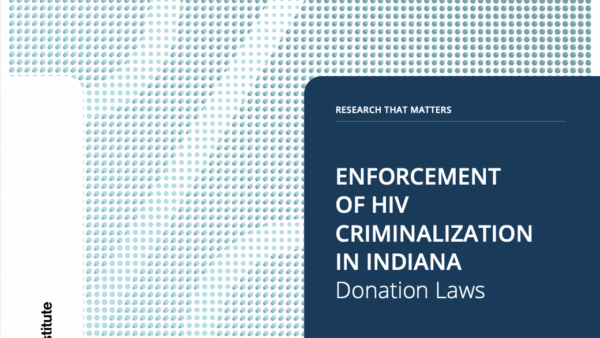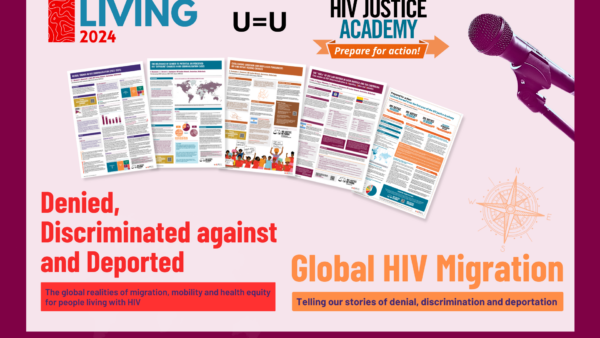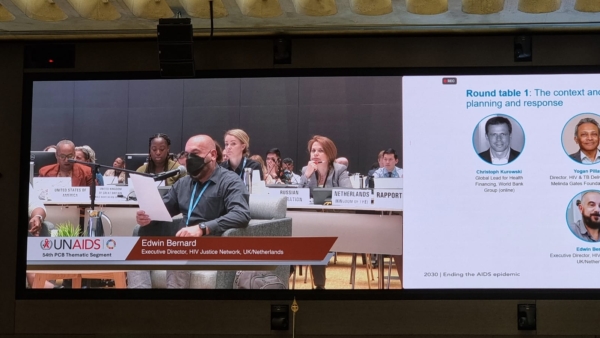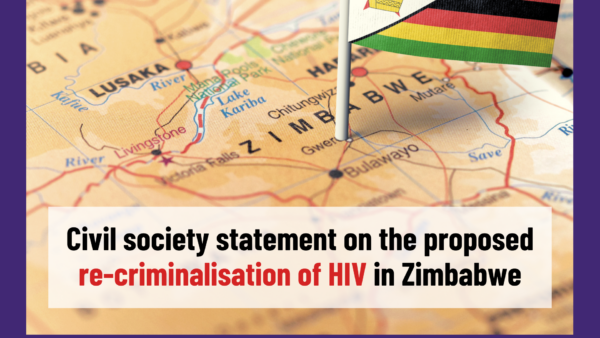
The Czech Health Ministry is pushing a proposed amendment to the law on public health which would make HIV testing compulsory for some people in high risk groups. While the ministry argues that this is to curb the spread of the disease and ensure early treatment, human rights advocates say it would mean a serious breach of human rights.
HIV testing in the Czech Republic is conducted anonymously and is free of charge. In its prevention programmes the Czech AIDS Help Society highlights the importance of getting tested in order to enable early treatment of the disease and protect others in the event of a positive outcome. Still many people who engage in what is seen as high-risk behaviour do not want to undergo testing. The Czech Health Ministry now wants to change that and force people who are considered to be at high risk to undergo testing or face a tall fine.
The proposed amendment to the law has already passed without opposition through the health committee of the Chamber of Deputies and is due to go into a third reading in the lower house. However it has stirred controversy among human rights advocates, and is strongly opposed both by the Czech AIDS Help Society and the government’s committee for the rights of sexual minorities.
 Robert Hejzák, photo: Czech Television Robert Hejzák from the Czech AIDS Help Society says repression is not the way to go –even in the interest of protecting public health.
Robert Hejzák, photo: Czech Television Robert Hejzák from the Czech AIDS Help Society says repression is not the way to go –even in the interest of protecting public health.
“Human rights are universal and we do not accept the argument that in the case of HIV they should be violated in the interest of public health. Moreover HIV positive people are not a direct threat to the public – this is not ebola, it is not tuberculosis or even the flu.”
The country’s chief hygiene officer Vladimír Valenta refuses to hear this argument saying that the health authorities have a duty to protect the public from an epidemic.
“We are talking about individuals who are at the centre of a high-risk environment and there is a higher probability of infection. From an epidemiological point of view HIV is no different from other diseases that put the population at risk. There is a danger off the virus spreading and this danger merits the same kind of protective measures as in other potential epidemics.”
 Vladimír Valenta, photo: Filip Jandourek At present the Czech Republic (with over 10 million inhabitants) has over 2,000 people registered HIV positive, and over 200 people have died of AIDS. Each year brings on average around 230 new cases. Under the present legislation testing is only compulsory for pregnant women in order to enable heightened protection of the unborn child. If the newly-proposed amendment passes through both chambers of Parliament and is signed into law by the president pretty much anyone considered high risk could be forced to undergo a test for HIV. How this would prevent them from spreading the disease further or even encourage them to act responsibly with regard to their own health is not clear and the answer to those questions may be decisive in whether lawmakers allow this particular amendment to pass through a third and final reading in the lower house.
Vladimír Valenta, photo: Filip Jandourek At present the Czech Republic (with over 10 million inhabitants) has over 2,000 people registered HIV positive, and over 200 people have died of AIDS. Each year brings on average around 230 new cases. Under the present legislation testing is only compulsory for pregnant women in order to enable heightened protection of the unborn child. If the newly-proposed amendment passes through both chambers of Parliament and is signed into law by the president pretty much anyone considered high risk could be forced to undergo a test for HIV. How this would prevent them from spreading the disease further or even encourage them to act responsibly with regard to their own health is not clear and the answer to those questions may be decisive in whether lawmakers allow this particular amendment to pass through a third and final reading in the lower house.









